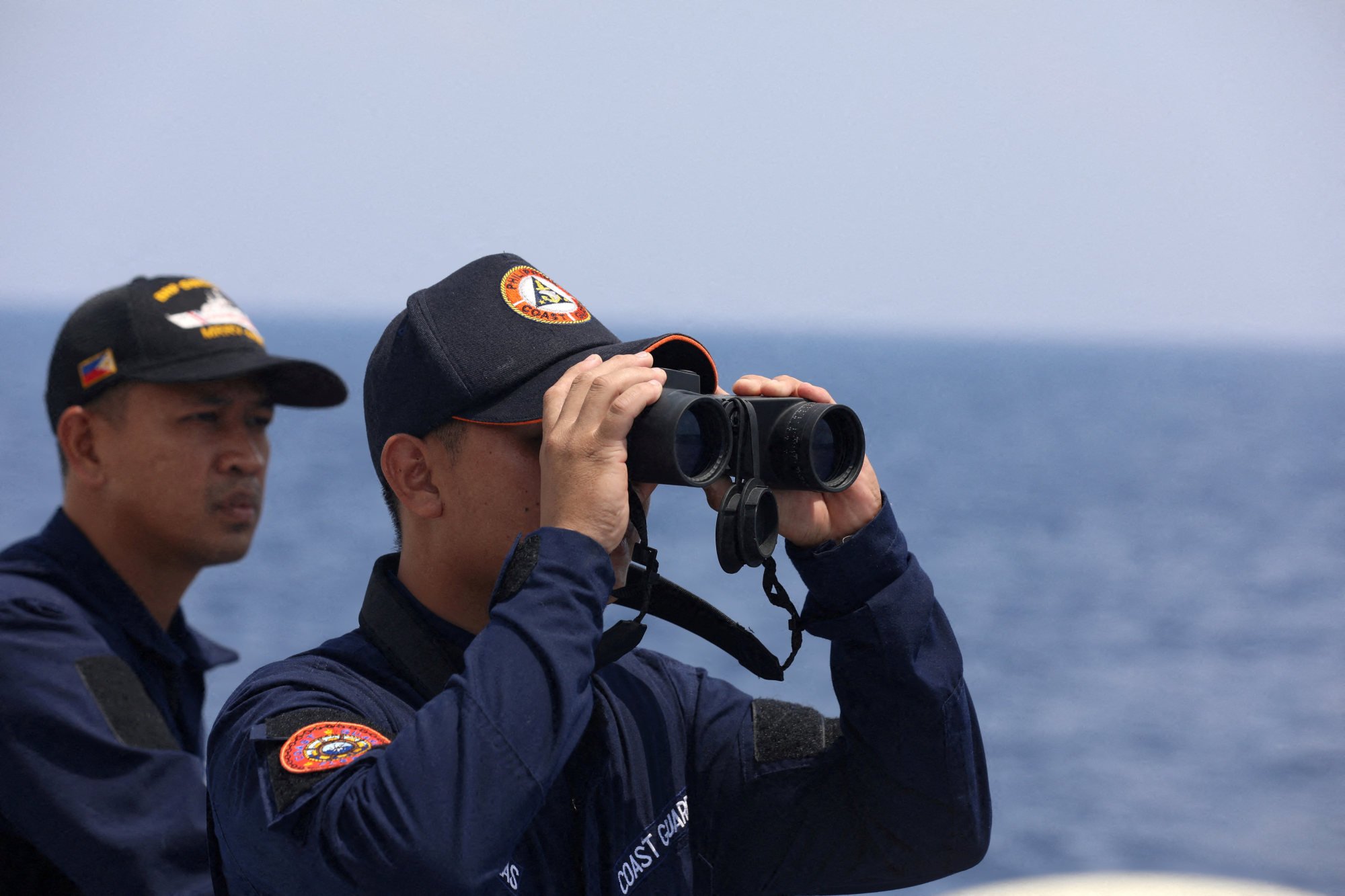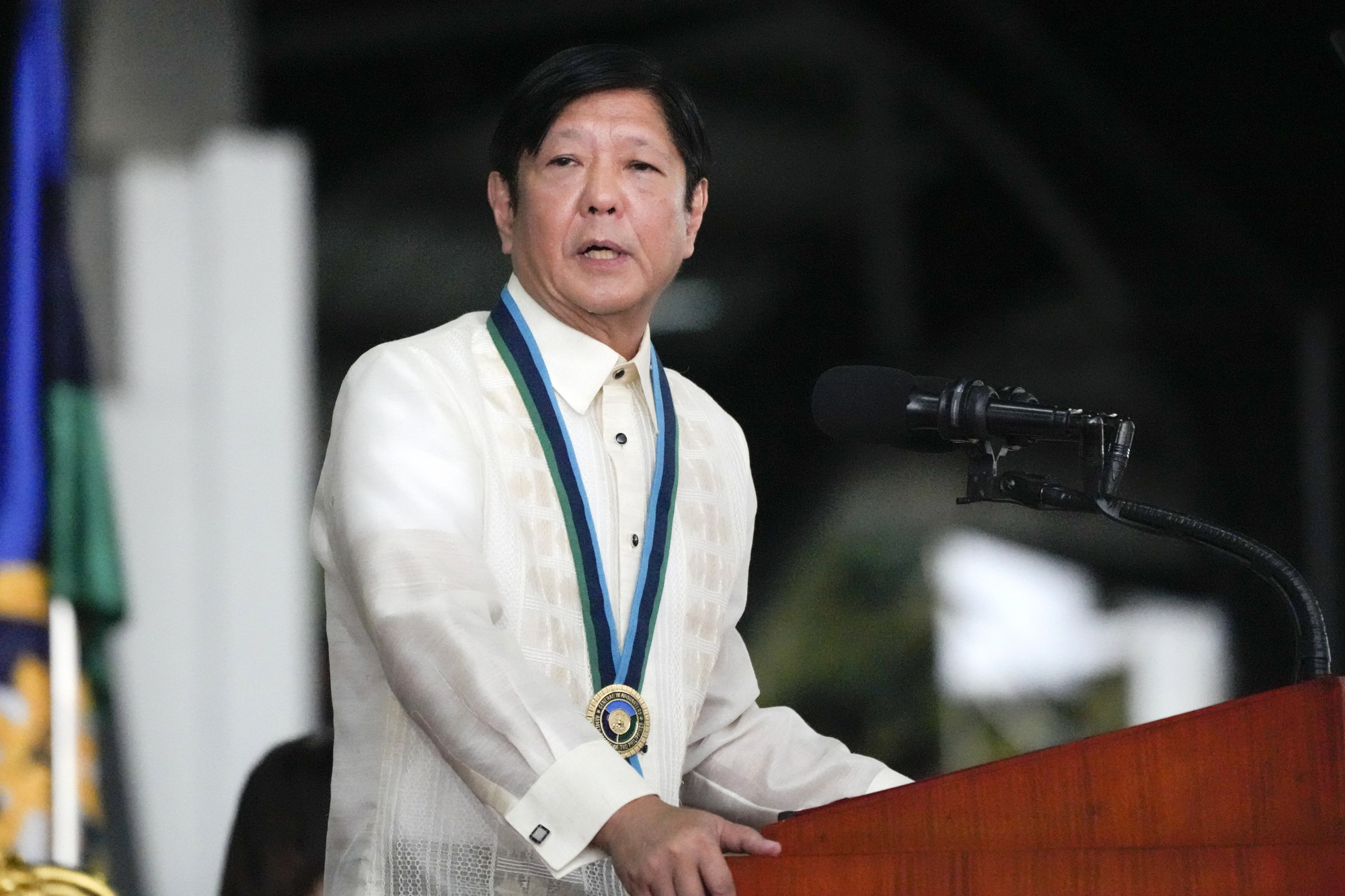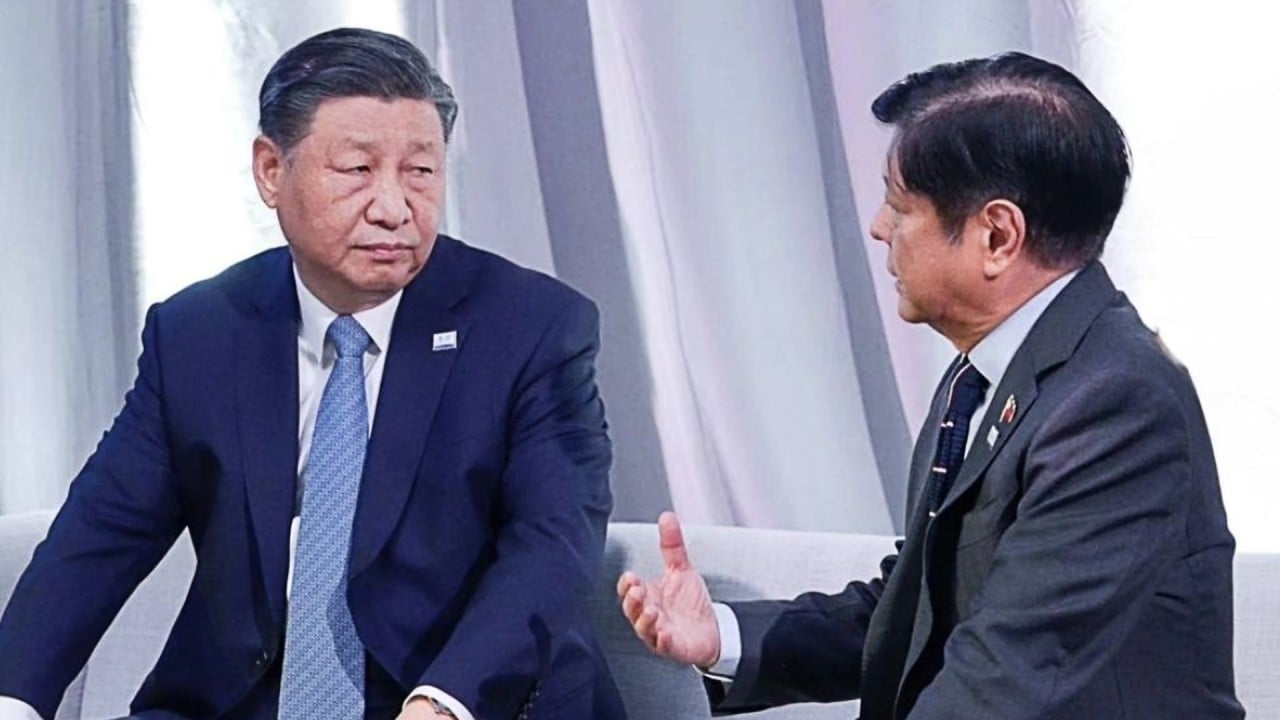Marcos’ plan to amend Philippine constitution for China deal sparks backlash
Marcos’ plan to amend Philippine constitution for China deal sparks backlash
Describing his country as one that “[enjoys] the privileges, rights and freedoms of a democratic society”, Teodoro Jnr said it was unsurprising that “an agent of a party and system of government incompatible with our way of life … would go that far and that low”.
The worsening tussle over ideological differences highlighted “the perennial mistrust and unclear expectations” between the two neighbours, said Chester Cabalza, a security strategist and founding president of the International Development and Security Cooperation (IDSC), a think tank in Manila.
The contrast between democracy and authoritarianism felt like “déjà vu” from the Cold War in that it might lead to “years of militarisation and confrontation in the region if not contained”, he added.
“It certainly opens a grand debate of suspicion,” Cabalza said, adding that the “unfurling of a complex geopolitical juggernaut and opposing ideology” might ignite “conflict, intolerance and rivalry”.
“It effectively reduces room for negotiation or compromise,” he said.
Tensions in the South China Sea have risen precipitously of late, particularly between China and the Philippines, whose forces have engaged in numerous confrontations in recent months while officials trade accusations about which side is responsible for creating conflict in the disputed waterway.
He noted that China and Vietnam, both communist countries, waged war over the Paracels in 1974 and Johnson South Reef in 1988.
Manila risks Beijing’s wrath with ‘non-starter’ South China Sea mini pact plan
Manila risks Beijing’s wrath with ‘non-starter’ South China Sea mini pact plan
Pitlo said Manila was also negotiating a separate code of conduct with Vietnam over the South China Sea and was looking to finalise a memorandum of understanding (MOU) between their respective coastguards ahead of Marcos Jnr’s planned visit to Vietnam next week.
On Tuesday, the Philippine Coast Guard said in a statement that Vietnam’s standing deputy minister of foreign affairs, Nguyen Minh Vu, visited its headquarters and met its deputy commandant for administration, Vice-Admiral Allan Victor Dela Vega.
During the meeting, both sides discussed the MOU aimed at strengthening “strategic partnership and cooperation”, as well as “promoting, preserving, and protecting” their mutual interest in the region.

Collective deterrence
IDSC’ Cabalza said Manila was expanding its “security cordon” with the goal of “forming a coalition for collective deterrence in the name of global security” and to maintain a rules-based order in the disputed waterway.
‘Always harassed’: the Filipino fishermen ensnared by South China Sea geopolitics
‘Always harassed’: the Filipino fishermen ensnared by South China Sea geopolitics
Asan Institute’s Lee said Manila’s defence pacts with multiple countries that offered “minimal deterrence power” would provide indirect help, should there be a conflict in the region.
However, a direct role in a conflict between any Southeast Asian countries and China in the South China Sea would require “more than simple defence cooperation”, Lee said.
The possibility for a “mutual defence agreement or treaty” where countries pledge to assist allies in conflict was slim, Lee added, given Southeast Asian countries’ negative view of “military alliance arrangements”.
Pitlo from the Asia-Pacific Pathways to Progress Foundation said Manila was leveraging its strategic location in return for military aid or security guarantees to quickly shore up the country’s armed forces and coastguard, as well as strengthen deterrence capabilities.

Last month, Marcos Jnr signed the 2024 national budget, which allocates greater funding for defence and maritime security, to the tune of US$4.1 billion. It represents a double-digit increase from the previous year’s allocation.
Pitlo added that the contribution to Manila’s military modernisation through defence cooperation with other countries would have to be weighed against the concern of having more foreign aerial and naval vessels operating out of and around the Philippines.


